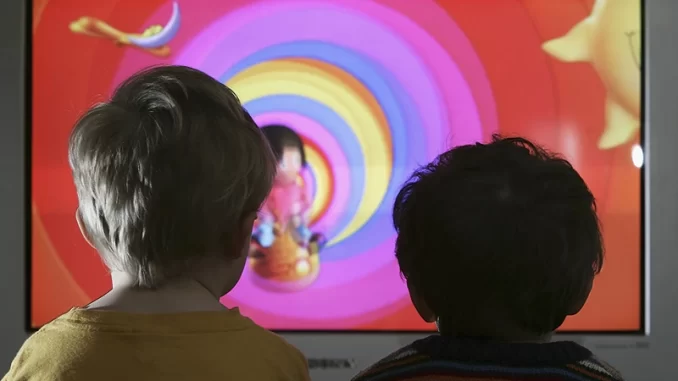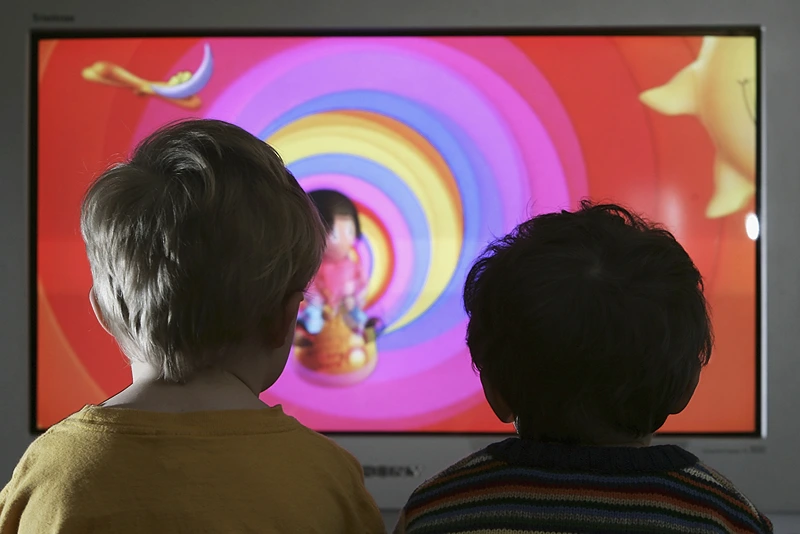

OAN’s Brooke Mallory
10:33 AM – Tuesday, August 22, 2023
According to a study that was recently published, the more screen time toddlers take in, the more likely they are to experience developmental impairments later in life.
Advertisement
Whether your young child is continuously watching television, using a tablet, computer, or smartphone, they are still at a significantly higher risk of developing developmental difficulties than a child who does not use the same type of technology.
The recent study that was published in the journal JAMA Pediatrics explained that these delays could be in communication, fine motor skills, problem-solving, or personal and social abilities.
“Passive screen time, such as mindlessly watching television or videos, may not allow children to practice interactive problem-solving skills,” said Dr. Jason Nagata, associate professor of pediatrics at the University of California, San Francisco.
“Screens can disrupt or displace interactions with caregivers and limit opportunities for verbal exchanges, which can impair communication and social skills,” he added. “When screen use does not have an interactive or physical component, children are sedentary and may not be able to practice their gross motor skills.”
However, Nagata was not involved in this specific study.
The research, which included over 7,000 Japanese children between July 2013 and March 2017, examined how many hours per day young children used screens at age one based on their mothers’ reports. The researchers also looked into how the children performed on several developmental exams between the ages of 2 and 4.
The study discovered that by the age of two years old, children who had spent up to four hours per day looking at screens were up to three times more likely to exhibit developmental impairments in communication and problem-solving abilities.
Children who spent four or more hours a day in front of a screen were nearly five times more likely to have poor communication abilities, twice as likely to have poor personal and social skills, and nearly twice as likely to have poor motor skills.
According to the study, developing communication and problem-solving skills were still ongoing struggles for the subjects by the age of four.
The study also found that mothers of children who spent the most time on screens were typically younger and [in many cases] first-time mothers, had lower incomes, less education, and were more likely to suffer from postpartum depression.
However, many experts were quick to point out the study’s discrepancies, like the fact that the quantity of screen time reported by moms was not split by “type,” such as educational media vs. entertaining media.
“Not all screen time is equal. For instance, watching educational programs or video chatting with family is not the same as passively watching television or fast-paced TikTok videos,” said Nagata.
Stay informed! Receive breaking news blasts directly to your inbox for free. Subscribe here. https://www.oann.com/alerts

